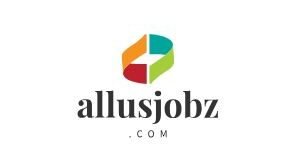Homeowners insurance is a crucial component of protecting your investment and providing financial security for your home and belongings in the United States. With various coverage options and considerations, navigating homeowners insurance can be complex. This article aims to provide a comprehensive guide to understanding homeowners insurance in the USA, covering key concepts, types of coverage, factors affecting premiums, and the importance of adequate protection.
Key Concepts:
Policyholder: The individual or entity who owns the homeowners insurance policy and is responsible for paying premiums.
Dwelling Coverage: This coverage protects the physical structure of the home, including the walls, roof, floors, and attached structures like garages, in the event of covered perils such as fire, windstorm, or vandalism.
Personal Property Coverage: Personal property coverage insures your belongings inside the home, including furniture, clothing, electronics, and other personal items, against covered perils both inside and outside the home.
Liability Coverage: Liability coverage protects you against lawsuits for bodily injury or property damage caused to others on your property. It also covers legal defense costs if you are sued.
Additional Living Expenses (ALE) Coverage: ALE coverage helps cover the cost of temporary living expenses if your home becomes uninhabitable due to a covered loss, such as a fire or storm damage.
Types of Homeowners Insurance Coverage:
HO-3 (Special Form) Policy: The most common type of homeowners insurance policy, HO-3 provides coverage for the dwelling, personal property, and liability, with specific exclusions listed in the policy. It offers broad coverage for a wide range of perils, except those explicitly excluded.
HO-5 (Comprehensive Form) Policy: Similar to HO-3 but with broader coverage for personal belongings, HO-5 policies typically provide replacement cost coverage for personal property rather than actual cash value, which may be subject to depreciation.
HO-6 (Condo Form) Policy: Designed for condominium owners, HO-6 policies provide coverage for the interior of the unit, personal property, and liability. They typically do not cover the exterior structure of the building, which is covered by the condo association’s master policy.
HO-4 (Renters Insurance) Policy: Renters insurance, also known as HO-4, provides coverage for personal belongings, liability, and additional living expenses for tenants renting a property. It does not cover the physical structure of the rented property, as that is the landlord’s responsibility.
Factors Affecting Homeowners Insurance Premiums:
Location: The location of your home, including factors such as proximity to fire stations, crime rates, and susceptibility to natural disasters like hurricanes or earthquakes, can impact insurance premiums.
Home Characteristics: The age, construction materials, square footage, and condition of your home, as well as features such as security systems, impact the cost of homeowners insurance.
Coverage Limits and Deductibles: Higher coverage limits and lower deductibles result in higher premiums, while lower coverage limits and higher deductibles lead to lower premiums.
Claims History: A history of prior insurance claims or losses on the property can affect insurance premiums, as insurers consider the likelihood of future claims.
Credit Score: In some states, credit history and credit scores may impact homeowners insurance premiums, as insurers use this information to assess risk.
Importance of Adequate Homeowners Insurance:
Asset Protection: Homeowners insurance protects your most significant investment, providing financial security in the event of damage or destruction to your home and belongings.
Liability Protection: Liability coverage protects you against lawsuits for injuries or property damage caused to others on your property, helping to cover legal defense costs and potential settlement amounts.
Mortgage Requirement: Most mortgage lenders require homeowners insurance as a condition of the loan to protect their financial interest in the property.
Peace of Mind: Adequate homeowners insurance provides peace of mind, knowing that you have financial protection against unexpected events that could otherwise result in significant financial loss.
In conclusion, homeowners insurance is an essential aspect of protecting your home, belongings, and financial security in the USA. By understanding key concepts, selecting appropriate coverage options, and considering factors affecting premiums, homeowners can make informed decisions to ensure adequate protection for their most significant investment.
